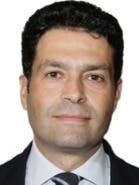http://english.alarabiya.net/en/views/2014/09/17/ISIS-and-extremism.html
It is essential to point out that what is at stake today is beyond what previous alliances have faced since 1990s and during the many wars on terrorism since then. What is at stake today is not just the need to defeat ISIS, but also to deny groups like it from existing and threatening the sovereignty and peace of state and society.
Political Islam
Many would disagree that a new approach to political Islam should be implemented to ban it from public life and to deny its interpretations of jurisprudence which undermines the rule of law, common law, society and the state system.Since the Iranian revolution in 1979, a rebirth of modern Islamic thought developed and flourished to challenge the quasi-state that emerged in Muslim and Arab lands in the post-colonial era.
It is essential to point out that what is at stake today is beyond what previous alliances have risked since 1990s and during the many wars on terrorism since thenThough it was riddled with holes, the nation state provided the umbrella under which most citizens could live. The weaker the state became due to adversities, economic hardship, corruption, internal or international challenges, the more ground religious groups gained.
Mohamed Chebarro
The tactic was simple; provide short term charitable services from religious groups and slowly guide desperate citizens towards relying on their version of religion in the absence of state institutions.
The result over years of failures by the nation state increased the schism in society.
The preacher replaced elected or appointed politicians. The mosque replaced the town hall buildings, ministries or even private sector institutions such as banks.
Societies, brotherhoods, feeding centers, personal development and education initiatives developed on the margin of many state institutions and in disenfranchised neighborhoods. With time, these informal institutions challenged and replaced the state or became a state within the state, as happened in Lebanon.
The ummah
All this materialized in calls by those groups for the consolidation of the ummah (the Muslim ummah, or nation) as a transcending force to bridge divides created by pro-Israel lobbyists and imperial borders.The calls for return to a Caliphate became central to desperate searches for answers to ongoing ills in society.
The new groupings, from Hezbollah to Hamas, from the Brotherhood of Egypt to the Jamaat-e-Islami in the subcontinent, sprang up and filled an open field to justify jihad, violence and attacks unseen since the Middle Ages, in my opinion.
Those groups and the societies they developed and sustained under the fake banner of the return to the essence of religious beliefs became the hotbeds for extremism and the dissemination of anti-state and anarchist propaganda. It is a machine to replace order with disorder as religiously driven social pressure groups seek power, divine, absolute and unquestionable power.
It is from those circles that want to revive the Caliphate that ISIS succeeded in recruiting thousands. It is from the validation of the concept of an Islamic nation that transcends borders at the expense of civil order that ISIS recruited hundreds of British , French and German Muslims.
It is political Islam that needs to be addressed, not just ISIS, so that this campaign of violence does not keep popping up in various forms of terror.
________________________
Mohamed Chebarro is currently an Al Arabiya TV News program Editor. He is also an award winning journalist, roving war reporter and commentator. He covered most regional conflicts in the 90s for MBC news and later headed Al Arabiya’s bureau in Beirut and London.







































No comments:
Post a Comment